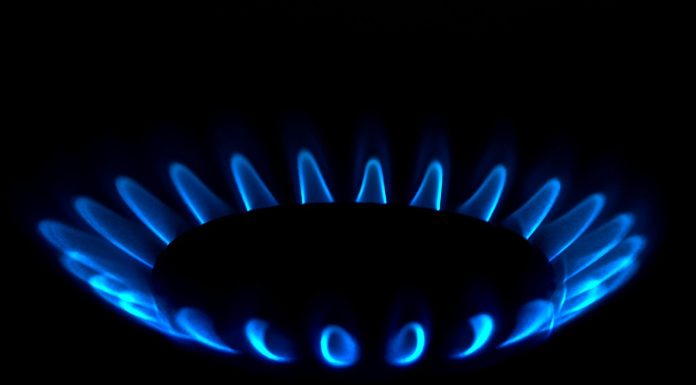Every month, Brussels Report’s editor-in-chief Pieter Cleppe provides an update on how EU interactions with its economically most important neighbours, the United Kingdom and Switzerland, have been going.
Also over the last month, a lot has happened in the European Union’s relations with its economically most important neighbours: Switzerland and the UK. Once again, a lot of parallels can we witnessed.
After EU-Swiss negotiations had broken down and top meetings in November didn’t result in a breakthrough, the “impasse” in EU-Swiss relations continues, with European Commission Vice President Maros Sefcovic even saying that “should new negotiations not lead to success, the bilateral agreements that were still in force would gradually expire and make our relationship obsolete at some point”.
An important development over the last month was that the Swiss government tasked the retiring head of the Swiss State Secretariat for Migration, Mario Gattiker, to analyse differences in regulations between Switzerland and the EU. This is a key aspect of the negotiations, given how the EU always makes market access dependent upon the extent to which trading partners are willing to take over regulations, an obsession that also needlessly complicated Brexit talks. At the same time, Foreign Minister Cassis will become Swiss President, while remaining Foreign Minister. Let’s see whether Gattiker’s appointment will make a difference, as the next big EU-Swiss meeting will take place in Davos in January. Some have blamed Cassis for the fall-out with the EU, but they tend to forget that it was the EU’s unreasonable demand to let the top EU Court serve as the – indirect – arbiter in EU-Swiss relations that ultimately collapsed the talks.
At the beginning of December, the Swiss House of Representatives also rejected a committee idea to double Switzerland’s “cohesion payments” to the EU, confirming that the discontent truly goes beyond personalities. Swiss MPs had already voted to unblock cohesion payments to the EU in September, which was the first time in more than a decade for Switzerland to approve a cohesion payment, so it would be unfair to accuse the Swiss of a lack of goodwill. This especially the Swiss government has also announced that Croatian citizen will enjoy freedom of movement from January 1 on.
In a separate development, Swiss and European student groups have issued a joint call, urging both the Swiss side and the European Commission to make progress on the issue of Swiss access to the Erasmus+ programme, from which Switzerland has been excluded since 2014 already, as the country has also been locked out of the EU’s “Horizon” research funding programme. One of the suggestions is to separate the question of association from broader talks on political relationship. That makes sense, but typically the EU is wary not to link everything to everything.
Furthermore, the EU also intends to crack down on a patchwork of national arrangements allowing non-EU banks to sell services into the EU, in a bid to stop almost all cross-border selling from outside of the EU into the EU single market. Unsurprisingly, this is aimed at the City of London, but it is likely to inflict collateral damage upon the Swiss financial services industry. This follows concerns by the European Central Bank about a recent sharp increase in the post-Brexit use of national arrangements and waivers enabling UK-based banks to continue to serve EU clients from London. The Swiss Bankers Association has warned the EU that this “contributes to open and integrated markets and, therefore, is in the interest of EU investors and hence ultimately in the interest of the EU”. The plans still need to be approve by EU member states and the European Parliament, but unfortunately, the ever more protectionist post-Brexit EU is unlikely to heed this kind of advice.
UK demanding to scrap the role of the ECJ
On the EU-UK front, there seemed to be quite a big development, as the government of embattled Prime Minister Boris Johnson was reported to have abandoned its efforts to scrap the role of the ECJ as the arbiter in EU-UK relations on matters related to Northern Ireland. If the UK would manage to do so, this would strengthen the Swiss opposition to the ECJ, but the Swiss can still say that the ECJ has no role in serving as the arbiter on any other EU-UK issue, as a traditional arbitration arrangement is foreseen for those cases. However, new UK Foreign Minister Liz Truss has been denying that the UK would have given up this demand.
Concessions were in any case made by the EU side, as the EU has proposed to ease medicines flowing between Britain and Northern Ireland, something that was supposed to be burdened by restrictions from the 1st of January 2022. Talks on the extent of intra-UK checks, which the UK conceded in return for full EU single market access for Northern Ireland, will extend into 2022.
One big change is that from January 1st, companies importing goods into Britain from the EU are required to make full customs declarations. Apparently, several big companies were still unprepared. The EU already imposed full customs controls on goods moving into the EU at the start of 2021. This helped to reduce total U.K.-EU goods trade down 15% in 2021 from its 2019 level. Given that there was only a 7% decline in non-EU trade, it can be concluded that a lot of the damage was not due to Covid. In this respect, a UK House of Lords report concludes that “GB-EU goods trade has become more difficult and expensive” following Brexit. Tariffs were avoided, thanks to the deal, but a lot of extra bureaucracy is now plaguing trade. More restrictions are upcoming, as for example UK van drivers will need new operating licences to enter EU from May 2022.
Overall, the Committee finds that GB-EU goods trade has become more difficult and expensive since the conclusion of the TCA, with further challenges on the horizon. While we recognise the Government's efforts to date, there is still much work to do. 6/6 https://t.co/SniJrufDYC pic.twitter.com/JiAHdfrbVx
— Lords European Affairs Committee (@LordsEUCom) December 16, 2021
That said, the UK is also using its newly found freedom to conclude trade deals, with the signing of the UK-Australia trade deal this month as the biggest success so far.
This is however overshadowed by Covid-driven developments, like the French restrictions on travel from the UK, inspired by the surge of the “Omicron” variant of the Corona virus, something which is deeply troubling Europeans that are living in London. Just before Christmas, France made a climb down, temporarily lifting its ban on UK nationals traveling through France to go to their home in an EU member state.
Also, there are ongoing skirmishes over fishing rights. Despite a deal that was reached between the UK, the EU and Norway on North Sea fishing limits, Brexit-related fishing talks are going less smoothly. France is now pushing the EU to issue legal proceedings against the UK, as it is not yet satisfied by UK concession on the matter.
In this way, unfortunately, the EU-UK relation is still tainted by bad blood and accusations of bad faith, as no “interim agreement” was reached on the outstanding issues.
It was always clear that, given how mutual trade is interwoven with recognition of each other’s regulations, the EU’s trade relationship with the UK would be one of perpetual negotiation, very much resembling the EU-Swiss relationship. Perhaps if the UK would join Switzerland in the non-single market department of EFTA, as I have proposed, the EU’s neighbourhood may become a more successful negotiator, but that’s still a long way off.
A version of this article was originally published by Swiss magazine Nebelspalter













